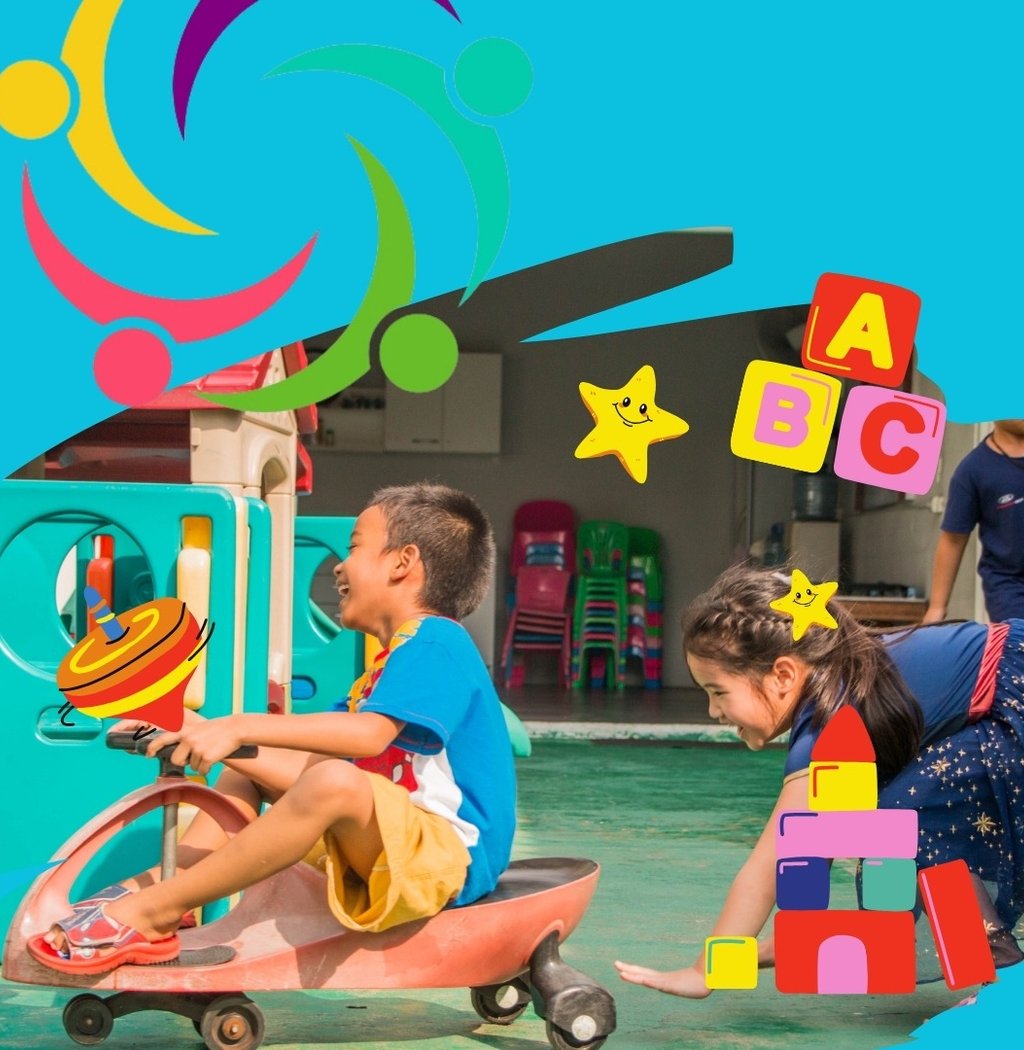Enhancing Play Skills with Pediatric Occupational Therapy: The Benefits of Online Learning
Enhancing Play Skills with Pediatric Occupational Therapy: The Benefits of Online Learning
1/20/20254 min read


Title: Enhancing Play Skills with Pediatric Occupational Therapy: The Benefits of Online Learning
In the ever-evolving world of pediatric care, occupational therapy (OT) plays a vital role in helping children develop essential life skills, including those necessary for play. Play is not just fun for kids—it is a critical aspect of their development, and occupational therapy can help ensure that children are equipped to engage in meaningful play. With the rise of technology, online learning has become an increasingly effective tool in pediatric OT, offering unique benefits to children who need additional support in improving their play skills.
What is Pediatric Occupational Therapy?
Pediatric occupational therapy is a specialized branch of therapy focused on helping children develop, improve, or regain the skills they need for daily activities. This includes everything from fine motor skills, sensory processing, social skills, and self-care to play skills. Play is an essential part of a child’s development—it helps with cognitive, emotional, and social growth, and OT therapists work with children to develop the skills necessary for play-based activities.
For children with developmental delays, disabilities, or conditions such as autism spectrum disorder (ASD), ADHD, or cerebral palsy, OT helps them navigate challenges in their play, making sure that they can enjoy the same play experiences as their peers. It’s also beneficial for children with fine motor difficulties or sensory processing challenges, as therapists can create individualized strategies to make play more accessible and enjoyable.
The Importance of Play in Child Development
Play isn’t just a pastime—it is the primary mode of learning for young children. Through play, children develop important skills, such as:
Cognitive development: Problem-solving, creativity, and understanding cause-and-effect relationships.
Social skills: Sharing, taking turns, following rules, and interacting with peers.
Emotional development: Learning to regulate emotions, cope with frustrations, and express feelings appropriately.
Motor skills: Developing both fine and gross motor skills through activities like drawing, building, running, or jumping.
In many cases, however, children with developmental challenges may struggle to engage in typical play activities. Pediatric OT helps children break through these barriers, facilitating skill development and fostering a sense of accomplishment and joy through play.
The Rise of Online Learning in Pediatric Occupational Therapy
With the increasing reliance on digital tools and platforms, online learning has emerged as a beneficial resource in pediatric occupational therapy. Virtual OT sessions have become an effective way to bridge the gap between traditional in-person therapy and the unique needs of children who may require additional support at home. Through online learning, children can access customized therapeutic activities that target the development of their play skills.
Benefits of Online Occupational Therapy for Play Skills
Flexibility and Convenience Online learning offers unparalleled convenience. Families no longer have to worry about travel time or scheduling conflicts. Virtual OT sessions can take place from the comfort of home, allowing children to engage in therapy in an environment they are familiar with. This flexibility is especially helpful for families with tight schedules or those living in rural areas with limited access to local therapists.
Personalized Therapy Programs Just as in traditional OT, online therapy is highly personalized. Therapists can assess the child’s specific needs and design individualized programs that target areas of difficulty. Online platforms often offer interactive tools, games, and exercises that help engage children while focusing on improving their play-related skills.
Consistency and Reinforcement With the aid of online learning, parents and caregivers can reinforce the skills learned in therapy at home. Many online OT programs offer resources that allow parents to guide their children through activities between sessions, ensuring that the child’s progress continues outside of therapy hours. This consistency and practice are crucial for skill retention and improvement.
Interactive and Engaging Tools Online platforms often incorporate fun, engaging, and interactive tools such as virtual games, videos, and activities that are designed to capture a child’s attention. This can make the process of learning and developing play skills enjoyable, encouraging children to participate actively in their sessions. Interactive tools also help build motivation and confidence in children as they see their progress.
Access to Specialized Therapists Online therapy allows families to connect with specialized pediatric occupational therapists who may not be available locally. Whether a child has unique challenges that require a therapist with specific expertise, or a family simply wants to ensure they’re receiving the best care, online therapy makes it easier to connect with the right professional for the child’s needs.
Parental Involvement and Education One of the greatest advantages of online OT is the ability for parents to be actively involved in the process. Therapists can provide guidance on how to assist their child with play-based exercises at home, offer feedback, and educate parents on how to create an environment that supports their child’s development. This partnership between therapist and parent helps reinforce skills and ensures that progress is being made outside of therapy sessions.
Key Play Skills Developed Through Pediatric Occupational Therapy
Whether online or in-person, pediatric OT can help children develop a variety of skills essential for play. Some key areas include:
Fine Motor Skills: Activities like drawing, building with blocks, or playing with small objects that require precise hand movements.
Sensory Processing: Helping children learn to tolerate and respond appropriately to sensory stimuli (such as textures, sounds, or lights) that may affect their play.
Social Interaction Skills: Encouraging turn-taking, sharing, and communication during play to develop strong social connections with peers.
Executive Functioning: Helping children plan, organize, and follow through on tasks during structured play activities.
Emotional Regulation: Supporting children in learning how to cope with frustration or disappointment during play, an important skill for emotional well-being.
Conclusion: The Future of Pediatric Occupational Therapy
Pediatric occupational therapy is a dynamic field that has adapted to the digital age. Online learning platforms have revolutionized the way children access therapy and improve their play skills, making it easier for therapists and families to collaborate, monitor progress, and reinforce skills in a supportive, engaging way.
If your child is facing challenges in developing play skills, online pediatric occupational therapy might be the solution to support their growth. Whether through virtual sessions, interactive activities, or ongoing parental guidance, the benefits are clear: increased accessibility, personalized care, and the opportunity for children to flourish in both their play and daily life.
If you're interested in learning more about how online pediatric OT can help your child improve their play skills, reach out to a qualified pediatric occupational therapist today. Together, we can unlock the potential for joyful, meaningful play—and a brighter future for your child.

Info@occupationaltherapistonline.com
© 2025. All rights reserved.